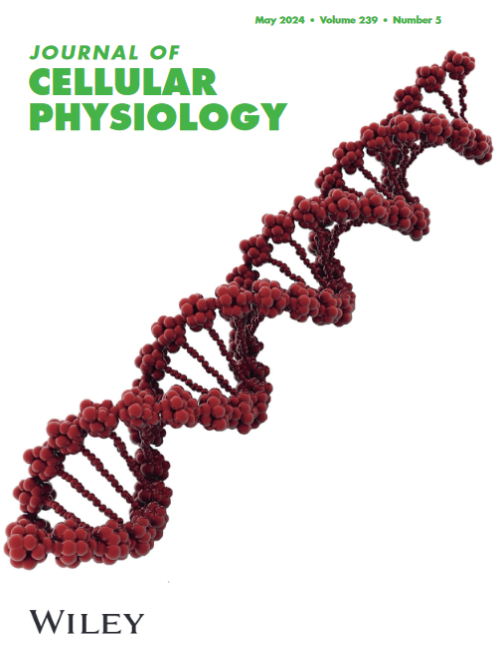Tumor‐Derived GDF15 Induces Tumor Associated Fibroblast Transformation From BMSCs and Fibroblasts in Oral Squamous Cell Carcinoma
Abstract
Cancer associated fibroblasts (CAFs) are the predominant stromal cell-type in the solid tumor microenvironment, originating from various cell types and playing a crucial role in promoting tumor progression and metastasis The generation of CAFs is influenced by complex factors secreted by tumor cells, with particular emphasis on transforming growth factor-β (TGF-β). However, it remains largely unknown whether growth/differentiation factor-15 (GDF15), as a member of the TGF-β superfamily, exerts similar effects to TGF-β in oral squamous cell carcinoma (OSCC). In this study, we investigated the impact of GDF15 derived from tumor cells on CAF transformation and elucidated the underlying mechanisms. Exogenous GDF15 and OSCC cells induced the transformation of bone marrow mesenchymal stem cells (BMSCs) and human gingival fibroblasts (HGFs) into CAFs, as evidenced by α-smooth muscle actin (α-SMA) as a phenotypic marker and TGF-β, interleukin 6 (IL-6), and vascular endothelial-derived growth factor (VEGF) as functional markers. Conversely, knockdown of GDF15 in OSCC cells reversed CAF transformation. Mechanistically, extracellular signal-regulated kinases 1/2(ERK1/2) pathway was associated with GDF15-mediated promotion of CAF transformation. Furthermore, OSCC-induced CAFs enhanced migration and invasion abilities of OSCC cells; but this pro-cancer effect was abolished upon knockdown of GDF15 in OSCC cells. Subcutaneous coinjection of OSCC cells with BMSCs or HGFs into mice revealed the promoted tumor growth along with increased expression levels of α-SMA and Ki67 compared with alone OSCC cells injection; these effects were attenuated when GDF15 was knocked down in OSCC cells. Collectively, our findings suggest that tumor-derived GDF15 contributes to the progression of OSCC by promoting CAF transformation through activation of the ERK1/2 pathway.





